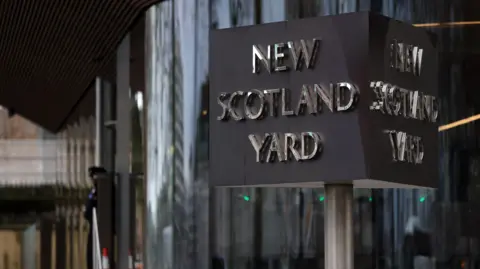In a significant development within UK law enforcement, three Iranian men have been charged under the National Security Act due to activities suspected of aiding Iran. The suspects, identified as Mostafa Sepahvand, 39, Farhad Javadi Manesh, 44, and Shapoor Qalehali Khani Noori, 55, were apprehended on May 3, 2025. Their subsequent charges stem from actions purportedly committed between August 14, 2024, and February 16, 2025, according to reports issued by the Metropolitan Police.
The investigation, described as “very complex and fast-moving” by Commander Dominic Murphy of the Metropolitan Police’s Counter Terrorism Command, marks an escalation of actions against potential threats linked to foreign intelligence operations. While the exact details of their conduct remain on the purview of legal processes, it underscores the UK’s ongoing concerns about national security in the face of foreign interference.
The three defendants are currently being held in custody, awaiting their court appearance set for Saturday at Westminster Magistrates’ Court. Each of the suspects faces charges related to engaging in conduct believed to assist a foreign intelligence service—specifically, that of the Iranian state. This highlights the potential nexus of international relations and domestic security in this case.
In addition to the overarching charges, individual allegations reveal a more detailed narrative of the men’s purported actions. Sepahvand has been specifically charged with conducting surveillance, reconnaissance, and engaging in open-source research with the intent of committing serious violence against individuals in the UK. On the other hand, Manesh and Noori are accused of taking part in similar activities aimed at facilitating others to execute acts of violence domestically.
Another individual—aged 31—was also detained on May 9 as a part of this comprehensive investigation but was released without any charges shortly thereafter. This indicates the nuanced and thorough nature of the inquiry, questioning various connections and roles within a potentially larger scheme.
Commander Murphy emphasized the dedication of detectives who have been “working around the clock” since the arrests. He mentioned that investigators have maintained direct communications with individuals believed to be affected by the alleged misconduct. This connectedness underlines the police’s attempt to monitor the situation closely and to coordinate their operations effectively.
Moreover, Frank Ferguson, who heads the Crown Prosecution Service (CPS) special crime and counter-terrorism division, urged caution against any reporting or commentary that may encroach upon the legal proceedings. Ferguson’s call for restraint resonates within the legal framework, highlighting the critical need to protect the integrity of the case.
While the charges present a serious implication of potential threats to public safety, this incident also reflects larger geo-political tensions and dynamics involving Iran’s influence and operations. The ramifications of such cases often extend beyond the immediate legal context, capturing a broader narrative of international relations and counter-terrorism measures within the UK.
In conclusion, the charges against Mostafa Sepahvand, Farhad Javadi Manesh, and Shapoor Qalehali Khani Noori encapsulate a significant legal confrontation with implications for national security. As the legal process unfolds following the upcoming court appearance, particular attention will be drawn to how these proceedings might reflect or influence UK approaches to foreign intelligence threats, especially in relation to ongoing tensions with Iran. The careful navigation of such cases is essential in balancing national security with civil liberties and appropriate legal recourse.



